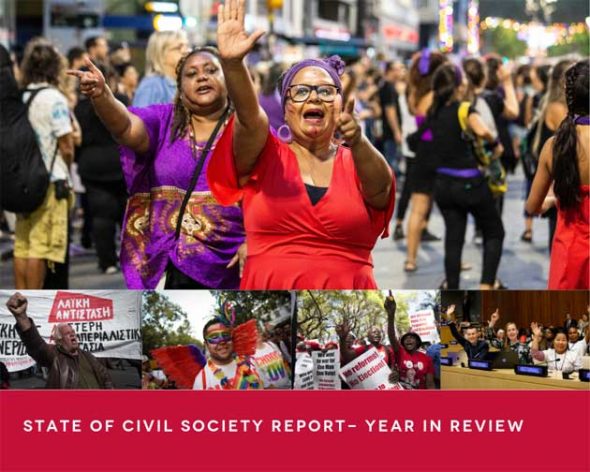Armed Conflicts, Civil Society, Development & Aid, Europe, Headlines, Human Rights, Population, Press Freedom, TerraViva United Nations
This article is part of a series on the current state of civil society organisations (CSOs), which is the focus of International Civil Society Week (ICSW), sponsored by CIVICUS, and scheduled to conclude in Belgrade, April 12.
Lysa John, Secretary-General of CIVICUS, in her opening address to the International Civil Society Week (ICSW)

Credit: CIVICUS
– It is an incredible privilege to welcome you all to the ‘International Civil Society Week’. I am going to remind us of the reasons that make it so important for us to be here in Belgrade this week.
This is our 16th global convening of civil leaders and 4th edition of the International Civil Society Week in particular – following on from events held in South Africa, Colombia and Fiji.
Our first World Assembly, as it was known then, was held in Hungary in 1997, and this time we have gathered in the Balkans – and we are very grateful to our peers in Serbia for hosting us.
Serbia currently features on the CIVICUS Monitor’s “Watch List” which draws attention to countries where there are serious and ongoing threats to civic space.
By hosting ICSW 2019 in Serbia, we hope to shine a spotlight on the strengths and challenges of civil society in this region, and find ways to amplify and support their efforts.
Civic freedoms are currently under attack in 111 countries. In other words, over six billion people face serious challenges in the exercise of freedoms of expression, association and peaceful assembly which are essential to an empowered and enabled civil society.
There is a continuing crisis facing civil society organisations and activists across the world – a global civic space emergency. Our job is to find ways to ensure this does not become the ‘new normal’.
We cannot be the generation that lost the fight to protect civic freedoms and democratic values. We owe the citizens, civic leaders and communities of the future a significantly stronger basis to organise for and achieve their rights.
There aren’t many people in the world who can genuinely claim to wake up every morning thinking about how to make the world a more just, more honest and more compassionate place. And yet, we have close to 1,000 people in this very room who do just that.
With over 900 delegates from 100+ countries gathered here, you can safely expect to meet every major form of civil society that works to defend and promote human rights worldwide – ranging from community groups, social entrepreneurs, academic organizations, campaigning networks, think tanks and foundations — in one place over the next few days.
We have the opportunity to connect lessons and inspirations while we are together here. Yet it is the changes that we will test and activate when we return to our personal and professional spaces that make being here worthwhile.
This could be refreshed strategies to challenge discrimination and exclusion or new ways to demonstrate innovation and accountability as a sector.
Our deliberations must reflect the urgency and intent required to make the changes we need to see in the real world – and in this gathering right here we have exactly the kind of determination and optimism needed to see this through. Thank you for being here – we wish you a truly inspired week!
I cannot end without thanking again our hosts in Serbia, Civic Initiatives and the Balkans Civil Society Network, for their warm and generous hospitality without which we wouldn’t be here.
A special mention is also due to the hosts of the previous ICSW held in Fiji – the Pacific Island NGO Forum – who are also here. Thank you for the lessons and achievements of our last gathering, which has enabled us to be more prepared and more ambitious this year.
